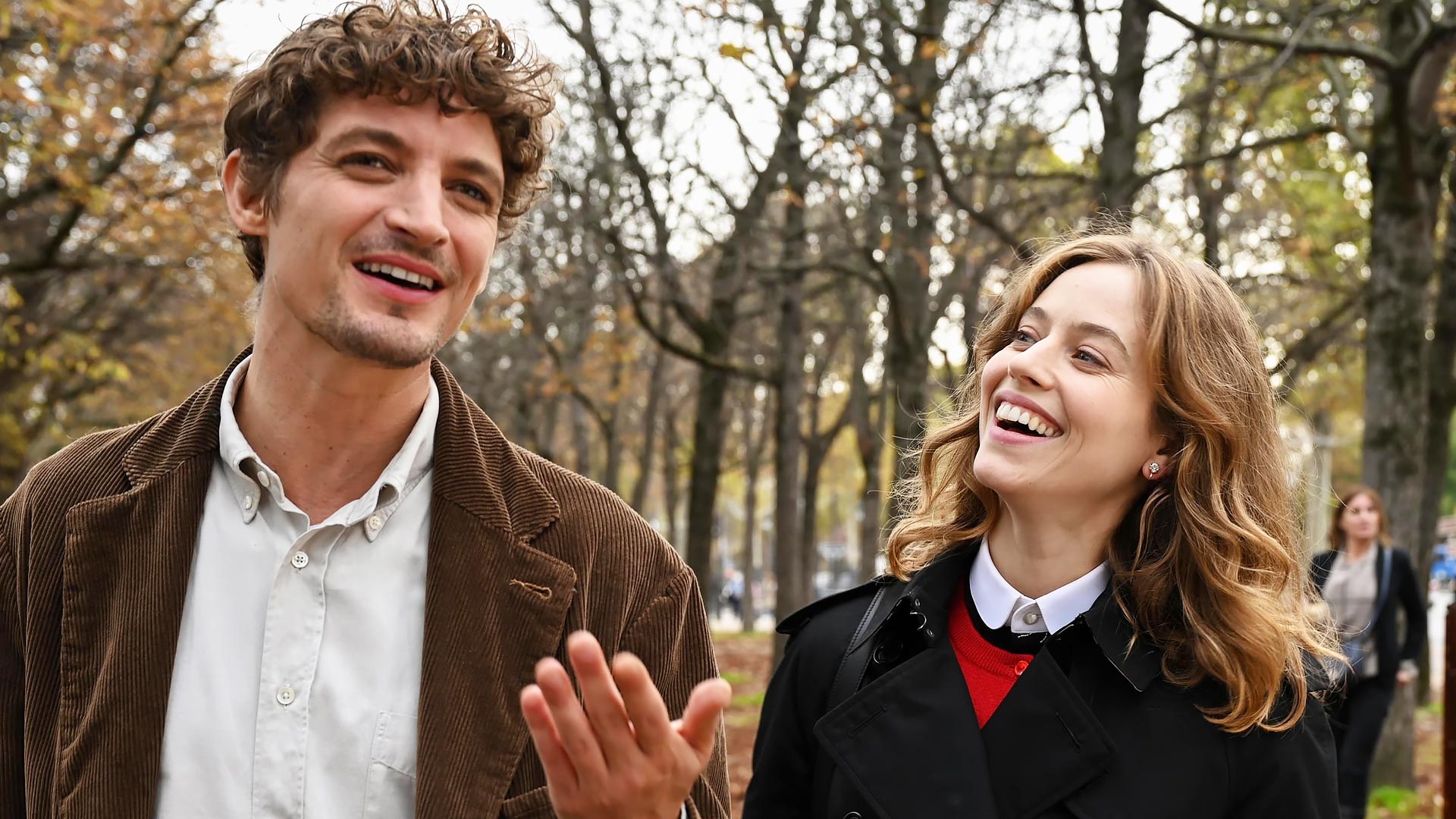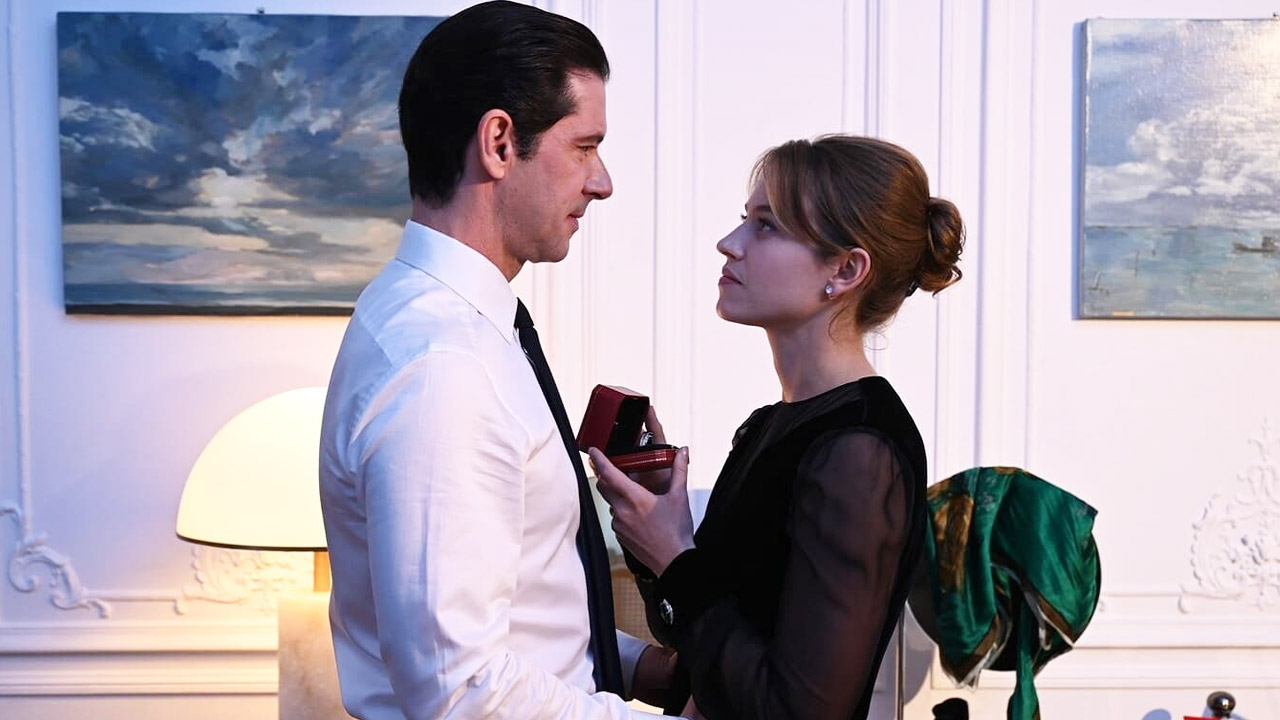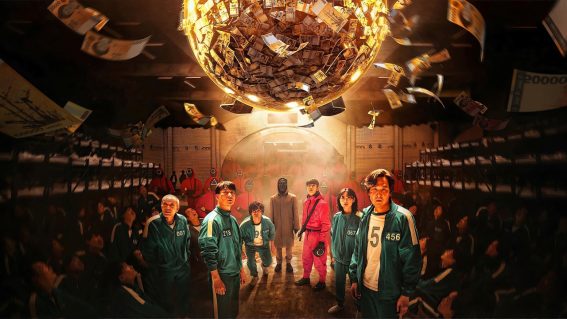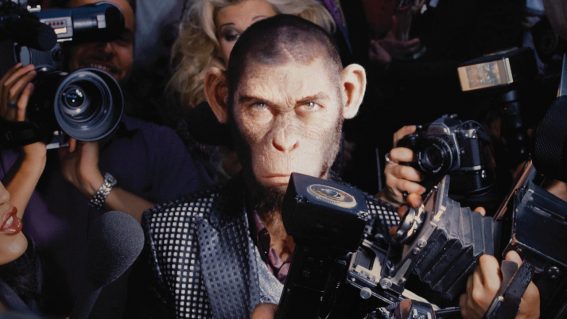Woody Allen serves up perfect Parisian cocktail of infidelity and crime in Coup de Chance

In what may be his best film in yonks, director Woody Allen combines nostalgic romance and noir-ish crime in Coup de Chance—here’s Luke Buckmaster’s review of the French-language drama.
Woody Allen’s new film is an unerringly graceful drama, with both comedy and thriller-ish vibes, that maintains a sprightly spirit even when entering the dark domains of crime and adultery. The French-language Coup de Chance is, as several critics have noted, the director’s best work in a decade: an effortlessly enjoyable picture that—like much of the octogenarian’s oeuvre—is in part a celebration of cosmopolitan life, here within an unmistakably Parisian context, and zhushed up with a beboppin’ jazzy score.
Contrasting the spritzy atmosphere is an escalating feeling that the walls are closing in—not necessarily for one single character but for circumstances in general, which orbit around a married woman’s affair. The film begins on the street, the camera swinging in dance-like moves around two characters reuniting after many years: gallerist Fanny (Lou de Laâge) and novelist Alain (Niels Schneider). The former asks “didn’t you write for the school paper?” and indeed he did; he also mentions that he used to have a big crush on her when they were classmates.
The pair now belong to different worlds: Alain’s still a bohemian, living in a small apartment and tapping away at his latest book, while Fanny hobnobs in high society, married to the self-made millionaire Jean (Melvil Poupaud). Nobody can say what Jean does without using generalities like “makes rich people richer.” The question of whether he mixes with shady people becomes more pertinent as the narrative progresses.
Fanny and Alain start hanging out, in scenes typically staged in lovely long takes. Walking and talking in the park, Alain explains that the book he’s writing follows a nightclub singer and jazz drummer, but really it’s about “how ironic life can be, how we’re ruled by chance and coincidence.”
This kind of language reminds Fanny of the circles she used to move in, with freespirits and conformists—a far cry from the hoity-toity sophisticates populating her present existence. Alain knows what buttons to press, asking if she has a happy marriage (confident—and correct—that she doesn’t) and the pair begin to have an affair. Meanwhile Jean, whose proud possessions include a (presumably hideously expensive) antique train set, senses something is up and hires a private investigator to track his wife’s movements.

Lou de Laâge and Niels Schneider make very charming lovers—not exactly a first for French actors—with Laâge especially forming multi-dimensional nuances, the script requiring considerably more from her than the radiant socialite. Melvil Poupaud is cold, like a wet fish, and impressively unlikeable. His performance fuels an important question: if Jean finds out the truth, how will he react?
This is teased out by Allen, who finds an advantage in the countless other portrayals of cheated-on spouses strewn across film history, in that there are many and varied responses. Will he be calm, explosive, physically or emotionally violent? Take matters into his own hands? Call in some favours? Astute viewers who are aware that the title translates to “stroke of luck” might correctly guess that a key pivot has something to do with this.
By the 30 minute mark Coup de Chance is still assembling its pieces, and still playing with expectations: we assume there’ll be a tipping point, infidelity triggering consequences and taking the drama somewhere else, but we can’t be sure what kind of film we’re watching. I previously described it as a drama, noting some funny and thriller-ish elements, though the thought crossed my mind more than once that this might actually be a thriller, or what would have been one were it not for the jazzy soundtrack. The tension is palpable but this film is so damn smooth and spirited: Allen is constantly increasing the volume, but you barely feel his hand on the knob.












